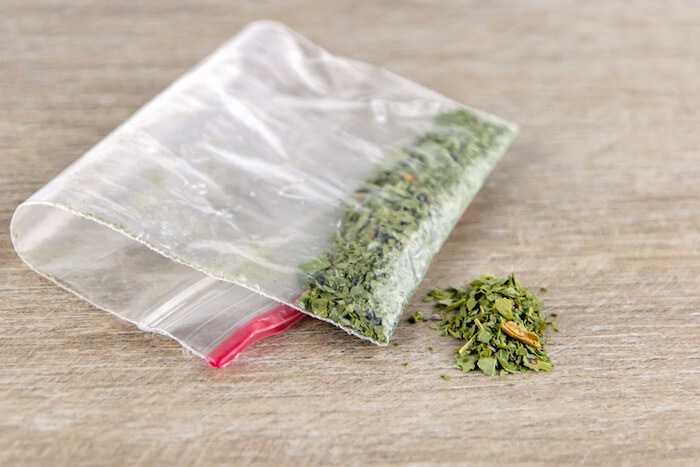Are you concerned about someone and think they may be using drugs or alcohol regularly? Recognising the five stages of addiction can help you understand the complex progression of dependence and addiction, which is essential in helping someone you care about.
Although they may be called slightly different names, the five stages of addiction are recognised as follows:
- Experimentation – Depending on the drug and the person, this stage may never lead to addiction or could result in addiction developing within days.
- Regular Use – This does not necessarily mean daily use. It could be sporadic use, weekly or even monthly use. At this stage, drug or alcohol use becomes a significant part of lifestyle and is often associated with use in social settings or with specific groups of people.
- Risky Use – Once negative consequences of drinking alcohol and using drugs become apparent, ignoring things like accidents or getting into dangerous situations is defined as risk use.
- Dependence – When body and brain functions adapt to drug or alcohol use, a dependence develops. This can result from trying to stop psychological or physical withdrawal symptoms, or cravings or in response to emotional and social triggers.
- Addiction – Substance use disorder (SUD) is the term used to describe addiction. Classified as a chronic brain condition, addiction means individuals cannot stop using the substance. They are no longer concerned about the results or how they may cause damage to their bodies. The substance is now a necessity rather than a desire or a craving for it.
The different stages of substance abuse may last for days, weeks or months. Below we provide a detailed explanation of the five stages of addiction to help you recognise the characteristics, signs, and symptoms.
Stage 1 — Experimentation
Initial use of alcohol or drugs is typically not something a person will give a lot of thought to. Many people will begin this stage by using drugs or alcohol in social situations. It is often considered just fun or a way to relax without consequences. Even if they use high amounts when binge drinking or taking cocaine on a night out, this can still be part of the experimentation stage.
There are many reasons why someone might experiment with an addictive substance, including:
- Health — experimentation with prescription drugs, such as opioids, benzodiazepines and barbiturates, often results from receiving these drugs for a health condition or following an accident or operation.
- Social Circumstances — such as living conditions, unemployment or high-stress jobs, may lead to experimenting with drugs and alcohol as a way to escape or cope with difficult emotions.
- Backgrounds — such as previous abuse or a history of trauma can increase the risk of someone experimenting with drugs and alcohol.
- Childhood — growing up in a household where substance abuse is common can make it seem normal to use drugs and alcohol.
- Social acceptance of use — this is common with alcohol and cannabis, which are easily accessible, and the use of is generally considered socially acceptable.
- Curiosity — is a natural part of human psychology, and for some people, substance use may result from simply wanting to experience the effects of drugs and alcohol.
- Peer pressure — wanting to fit in and the availability of a substance is another common reason for experimenting with drugs and alcohol in the early stages of addiction.
- To enhance abilities — certain drugs may enhance a person’s mental and physical capabilities. This can lead to people feeling under pressure to use drugs in a cultural environment when succeeding is the objective.
- Rebellion — Using drugs and alcohol can also be a form of defiance against authority figures or social norms. This could be simply to enjoy the feeling of taking risks and making decisions or acting in ways that are not acceptable which can provide a sense of identity.
- Mental health conditions — may affect the way the frontal cortex of the brain functions, which can impact the control of impulses and decisions, resulting in the desire to try drugs or alcohol. Conditions such as depression, anxiety and personality disorders may trigger experimental use to relieve these symptoms.
Experimentation only sometimes progresses to the next stage of addiction. However, experimentation can cause addiction after just one use depending on the substance. During the experimental stage, drugs are often used casually, and drugs commonly taken during this stage, such as cocaine, may be cut with highly addictive drugs like Fentanyl.
Prescription drugs and legal highs are also frequently used during this stage as they are viewed as a safer alternative to illicit drugs. But these drugs can be just as addictive or even more so than illicit drugs. They are also more readily available and cheaper, making them more tempting.
Stage 2 — Regular Use
At this stage of addiction, drugs or alcohol are used regularly and become an increasingly important part of everyday life. Some individuals will remain in the regular use stage for many months and will use it for periods, then stop and start again in an attempt to remain in control.
Signs of regular drug or alcohol use include:
- Daily routines — someone might go out more or with certain friends or want to spend time alone when they previously would have spent time with family or friends.
- Neglecting responsibilities — They are more likely to miss work or college due to “illness” and stop doing important things, such as cooking dinner or collecting children from school.
- Sleeping patterns — you may notice a change in sleeping patterns, such as napping during the day, staying up late or managing with little or no sleep.
- Eating patterns — regular use of substances may increase or reduce a person’s appetite. You may notice they skip meals, seem to eat very little, or they may eat more or at erratic times of the day and night.
- Lack of motivation — they seem unmotivated. Performing well at work or college may no longer be a priority, where they live may become dirty, or they may stop participating in activities they used to enjoy.
- Mood swings — are a common sign of regular drug use and can also include aggression and behaviour that is different from their usual self.
- Lack of hygiene — clothes may be worn repeatedly, and body odour can become a problem from not washing often enough. Teeth are also one of the first things to be neglected, resulting in smelly breath, tooth pain and the need for dental treatment.
- Borrowing money — they may start using credit cards more often than usual. Rent and other bills may be paid late, and you might notice they ask to borrow money to pay for important things.
Regular use can quickly progress to stage three, as drugs and alcohol become normal in a person’s life. There will likely be some overlap between signs of regular and risky use. It can be difficult to determine if someone is in stage two or three without having a conversation with them.
Stage 3 — Risky Use
As the name suggests, this stage involves risky use and is indicated by negative consequences of drug or alcohol abuse. Signs of risky use can be difficult to recognise but may involve:
- Breakdown of relationships and loss of friends
- Frequently missing work or college
- Using drugs or alcohol when driving, at work or around children
- Dangerous behaviour, such as unsafe sex or hitchhiking
- Aggressive and violent behaviour
- Getting arrested or committing crimes.
Physical signs that you might notice at this stage are:
- Extreme weight loss or weight gain
- Red and glassy eyes
- Injuries and bruises.
By this point, the brain has adjusted. Consuming more of a substance, switching to harder drugs, highly addictive drugs, like heroin or crystal meth, or injecting drugs to get high faster frequently leads to dependence — the next stage of addiction.
Stage 4 — Dependence
This stage can result in serious behavioural changes that are obvious. By now, drinking or using drugs is no longer optional; the individual must do so, or they will suffer from withdrawal symptoms. Holding a steady job or keeping up with rent or other essential bills can become harder.
Dependence develops in three stages:
- Tolerance — a condition known as tolerance occurs when you start needing more of a substance to attain an equivalent “high” as when you first started using the substance.
- Physical dependence — when stopping using drugs or alcohol results in withdrawal symptoms, a physical dependence has been established. (Physical tolerance can develop even when prescription medications are taken as prescribed by your doctor.)
- Psychological dependence — drug cravings, a high rate of substance use (either consuming more, using more often, or a combination of both, and relapse following efforts to stop using are all signs of psychological dependence.
During this stage, drug and alcohol withdrawal symptoms may include:
- Nausea and vomiting
- Headaches
- Fatigue
- Sweating or shivering
- Muscle pain and aches
- Tremors
- Insomnia
- Anxiety and depression
- Paranoia and panic attacks.
At this point, the dependent person’s new way of life involves minimising cravings and withdrawal symptoms. Stopping can seem impossible, and the physical and mental cravings can be overwhelming.
Stage 5 — Addiction
At this stage, using drugs or alcohol takes priority above everything else. There are many signs of addiction. Relationships or job loss is common, and in some cases, a person with an addiction could end up homeless. By this point, they are likely to interact with a different group of individuals, acting entirely out of character, and unable to function without drugs or alcohol.
Diagnosis of Substance Use Disorder (SUD)
When you meet a set of specifications, you meet the criteria for being diagnosed with a substance use disorder (SUD). The severity of a substance use problem depends on the extent of and how many criteria are met. The evaluation will take into account factors like:
- You don’t want to function unless you are using drugs or alcohol
- Your use is outside of your control
- Despite the damage that using a substance causes to your well-being, health and safety, you keep using it
- You minimise how often and the quantity of the substance you use
- You minimise interaction with your friends and family
- You’ve ceased doing activities and socialising
- You are indifferent to what is happening around you or how you behave.
It is extremely tough to overcome an addiction without professional help and support. If you are worried about someone, speaking to the person you are concerned about is critical.
At Step by Step Recovery, we provide residential rehab in Essex and offer free advice on supporting and treating addiction. Please complete our online assessment form or call our free phone number on 0800 170 1222 for free, confidential advice.




